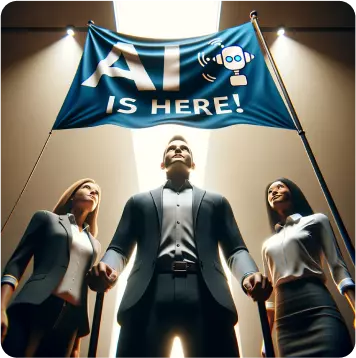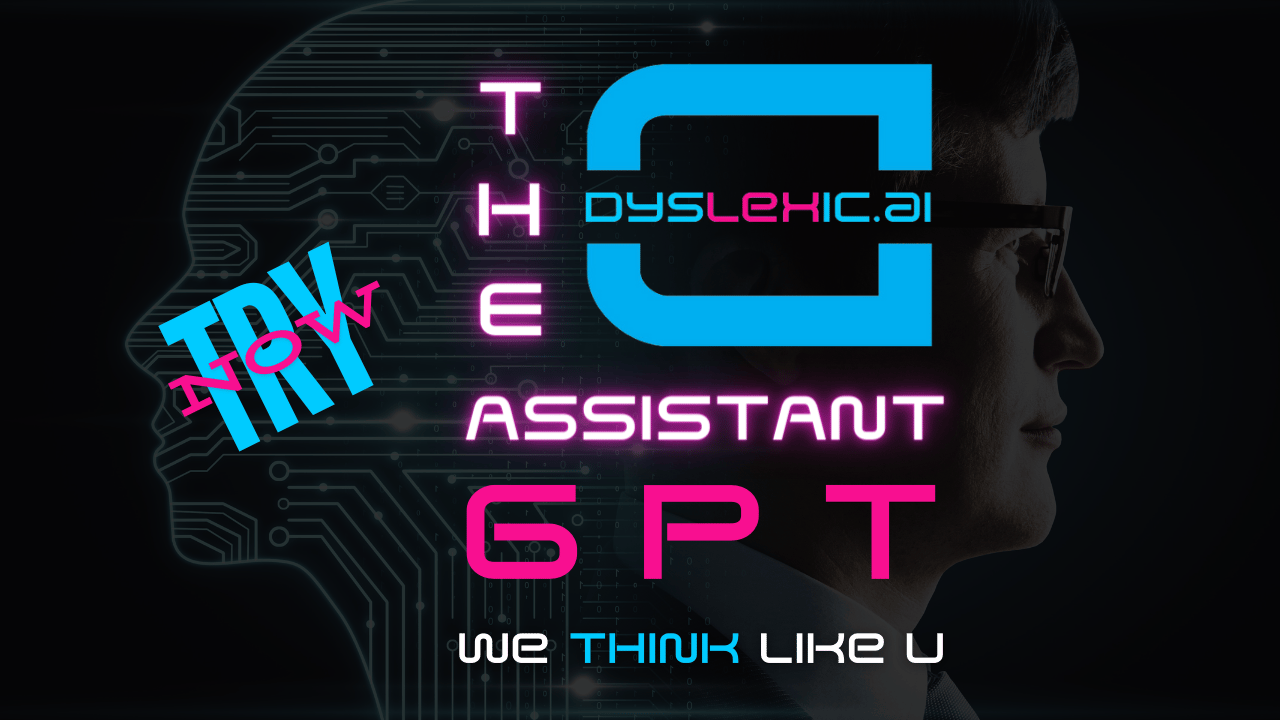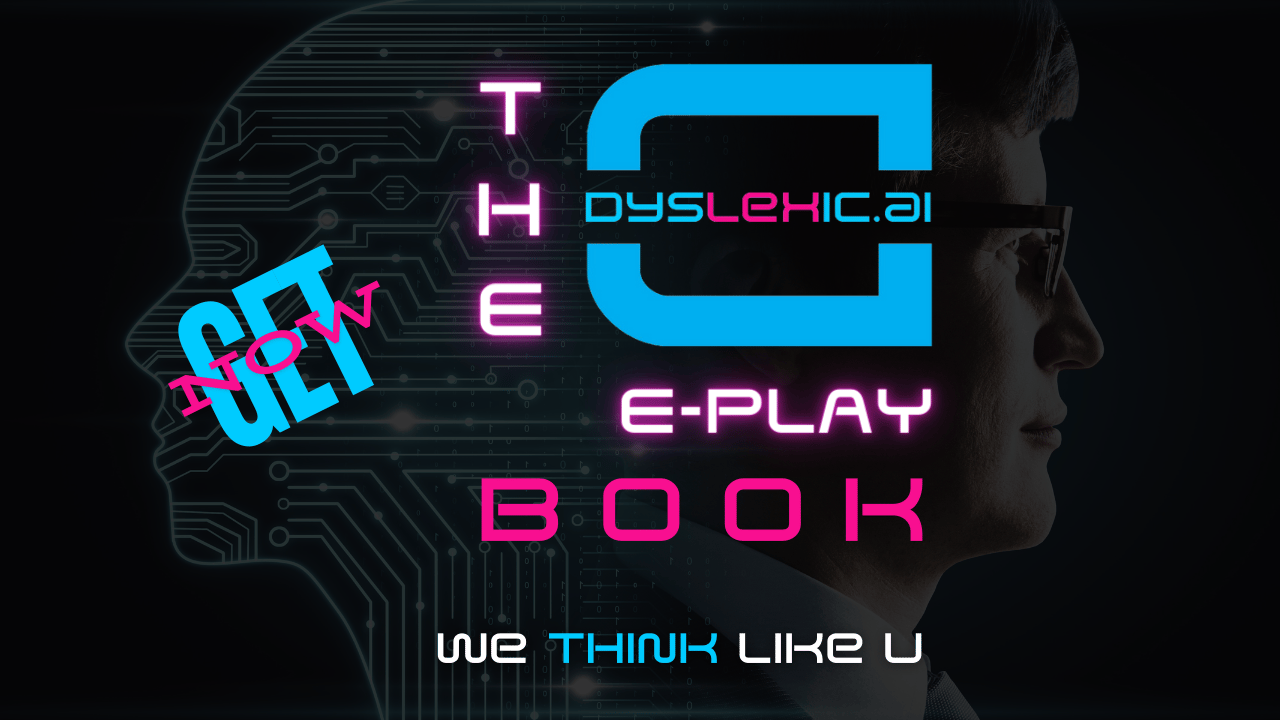- DYSLEXIC AI
- Posts
- Newsletter 279: Harnessing AI and Cognitive Architecture to Upskill as a Neurodivergent Professional
Newsletter 279: Harnessing AI and Cognitive Architecture to Upskill as a Neurodivergent Professional
🧠 How Understanding AI Can Transform Your Professional Journey

There’s a reason 400,000 professionals read this daily.
Join The AI Report, trusted by 400,000+ professionals at Google, Microsoft, and OpenAI. Get daily insights, tools, and strategies to master practical AI skills that drive results.
Hello, fellow lateral thinkers!
Today, we're diving into something that's close to my heart: how we can use AI not just as a tool, but as a true cognitive partner in our professional journeys.
As neurodivergent professionals, we often see the world through a unique lens – and with the right approach to AI, we can turn that perspective into our greatest professional strength.
There's something powerful happening at the intersection of neurodivergent thinking and artificial intelligence.
As I sit here reflecting on the rapidly evolving landscape of AI in the workplace, I can't help but feel excited about the unique opportunities it presents for those of us who think differently.
The Power of Cognitive Architecture
Think of cognitive architecture as the blueprint of how our minds work with AI.
For us neurodivergent thinkers, this concept is particularly exciting because it acknowledges and validates our unique way of processing information.
What Makes It Special:
The combination of right-brain creativity and left-brain logic creates something remarkable.
While our minds naturally leap between ideas in non-linear ways, AI can help us capture and organize these insights without losing their innovative spark.
It's like having a partner who can translate our brilliant but sometimes scattered thoughts into structured, actionable plans while preserving what makes our thinking unique and valuable.
Building AI Literacy: Your Professional Foundation
AI literacy goes far beyond knowing how to use ChatGPT or other popular tools.
It's about developing a deep understanding of how AI can complement your unique thinking style.
Core Components of AI Literacy:
Understanding AI's Role:
- Knowing when AI can enhance your natural abilities
- Recognizing where AI can provide needed structure
- Identifying the right tools for different tasks
Creating Personal Systems:
- Developing workflows that match your thinking style
- Building processes that feel natural, not forced
- Establishing routines that support your strengths
Transforming Your Professional Growth
Let's look at three key areas where AI literacy can transform your professional journey:
1. Learning and Development
Traditional professional development often follows a linear path that might not align with how we think and learn.
With AI literacy, you can create a learning environment that adapts to your cognitive style.
2. Communication Enhancement
Many of us have brilliant ideas but sometimes struggle to convey them in ways others easily understand.
AI can help bridge this gap, ensuring your unique insights are effectively shared with others.
3. Project Management
AI can help break down complex projects into manageable pieces while maintaining your ability to see the big picture and make unique connections.
Taking Control of Your Career Path
Understanding AI deeply allows you to shape tools and processes that work for you, rather than adapting to traditional systems that might not suit your thinking style.
Key Areas of Impact:
Professional Autonomy:
Create systems that support your work style while meeting organizational needs.
Use AI to handle routine tasks that drain your energy, allowing you to focus on where your creativity shines.
Career Advancement:
Take on more complex projects with confidence, knowing you have AI support to help with organization and execution.
This isn't about letting AI take over – it's about creating a partnership that enhances your natural abilities.
Real-World Applications
Let's explore how this works in different professional contexts:
In Creative Roles:
Transform scattered inspiration into organized projects without losing creative spark. Use AI to manage deadlines and details while maintaining creative freedom.
In Technical Positions:
Document complex problem-solving processes in clear, structured ways while preserving your unique approach to solutions.
In Leadership Roles:
Bridge different thinking styles within your team, using your ability to see connections others miss, supported by AI's analytical capabilities.
Looking Ahead: Shaping the Future of Work
The future of professional success isn't about conforming – it's about creating environments where diverse thinking styles become valuable assets.
With strong AI literacy, we can actively shape this future.
Your Next Steps:
1. Observe how you naturally think and work
2. Notice where you excel and where you need support
3. Experiment with AI tools that complement your style
4. Keep track of what works and what doesn't
Final Thoughts
Remember, the goal isn't to use AI to mask or change your natural thinking style – it's to amplify your unique strengths while providing support where you need it.
As neurodivergent professionals, we bring valuable perspectives to our fields.
With AI literacy, we can ensure these perspectives are not just heard but become driving forces for innovation and change.
Onward and upward,
Matt Ivey & The Dyslexic AI Team
P.S. Want to develop your AI literacy in a way that complements your unique thinking style?
Quick Note: Don't Miss This!
Hey! Before I wrap up - as an AI Insider Member, I have to tell you about the Chief AI Officer 3-Day Challenge.
If you're ready to level up your AI leadership game, this is your chance.
I've experienced it firsthand and can't recommend it enough for fellow neurodivergent thinkers.
Want to transform how you lead with AI? Check it out here:

The TL;DR for Our Fellow Skimmers:
AI literacy isn't just about using tools—it's about making them work for your unique brain
Cognitive architecture helps blend our creative thinking with AI's structured support
You can build personalized AI systems that match how you naturally think and work
The future needs neurodivergent perspectives in AI leadership
Understanding AI deeply means more career control and growth opportunities
|
|
|









Reply